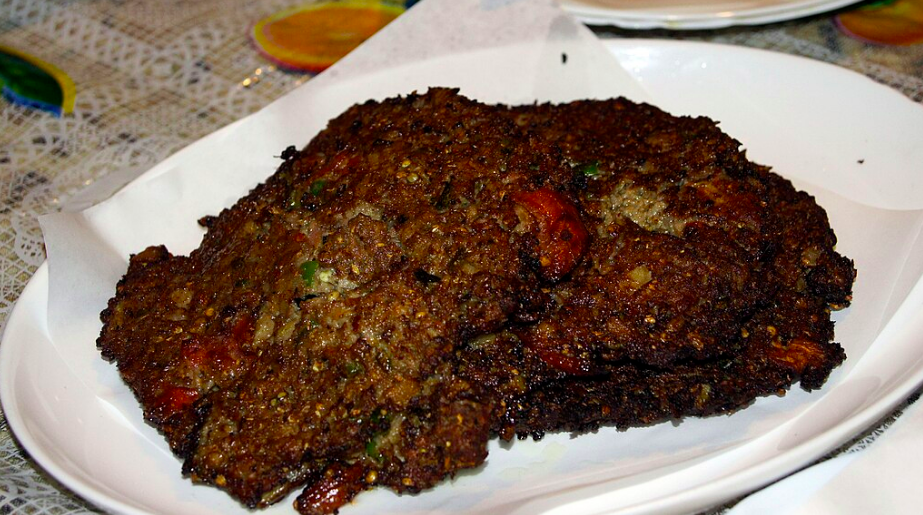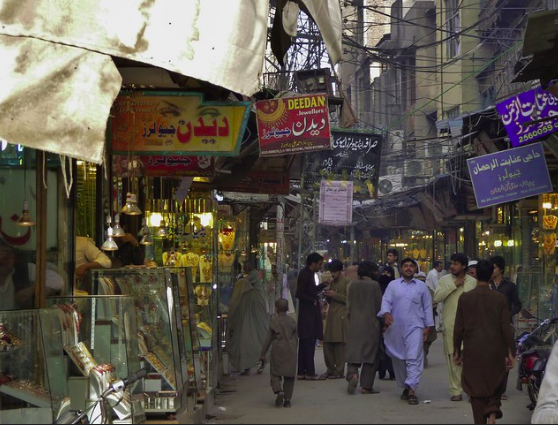Winter Season Boosts Fish Market in KP
APP
Peshawar: The biting cold and dense fog in KP have increased demand for mouth-watering fish varieties like trout fish and delicious chappli kabab, particularly in Peshawar. Eateries are bustling with customers relishing these delectable bites until late into the night.
Known for hospitality, Peshawar is a unique ancient city frequently visited by tourists and food lovers to relish on its delectable traditional food varieties, including mouth-watering chappli kabab, Peshawari rice-polao, and fish varieties mostly brought from Malakand, Hazara divisions, Punjab, and Karachi as special winter food recipes.
While travelling on historic Qissa Khawani and Namak Mandi bazaars in the bustling city of Peshawar, a visitor can’t resist the aroma of grilled fish and chappli kabab being served with traditional Qehwa and spicy sauces in the harsh winter.“The tantalising aroma of trout and carp fish, besides other varieties and chapli kabab, has always attracted me to enjoy its delectable taste at Qissa Khawani bazaar. It is my third visit to Qisa Khawani of the ongoing winter season with my family” said Riaz Khan, a resident of Nowshera.My visit to Peshawar remained incomplete without enjoying the mouthwatering chappli kabab and grilled fish with green qehwa,” he said. Besides food outlets, many visitors take parcels for their loved ones at home to keep themselves warm in the harsh winter.
Ganta Ghar, a famous fish trade hub in Peshawar, drew a substantial number of sea food lovers on Thursday, where trade of fish varieties including mushka, raho, simon, pomfret, mahsher, and lobsters significantly increased after the cold wave gripped the Peshawar valley for the last three days.
The hotel’s owners and even vendors received a deluge of orders for eating at shops and home delivery from residents and visitors enjoying its delicious bites along with loved ones during the peak of the winter season. Sajid Ali, a trader of a fish outlet at Ghanta Ghar, said trout stock has been brought from Swat and Mansehra districts as a special winter offer to fulfil Peshawarties’ pressing demands. “The recipe for trout fish is very simple and time-efficient. We prepare trout in oil after its proper water wash and cutting.
Sajid Ali, a trader of a fish outlet at Ghanta Ghar, said trout stock has been brought from Swat and Mansehra districts as a special winter offer to fulfil Peshawarties’ pressing demands. “The recipe for trout fish is very simple and time-efficient. We prepare trout in oil after its proper water wash and cutting.
Later, varieties of spicy sauces, pomegranate seed powder, salt, and other ingredients are properly mixed.”
Before making it on medium heat, he said the fish is properly marinated for about two hours to ensure that all sauces are intact and the colour is unchanged. It is later served to customers with chips, sauces (Chitnis), salad, and naans.
Sajid said most people wanted deep-fried fish, some liked ‘tawamacchi’ and many liked grilled and baked trout fish for eating at shops as well as taking the parcel for their loved ones. Adding one kilogrammeme of un-grilled trout was being sold at Rs 3000 to Rs 3500 per kilogrammeme in the open market.
Wapda’s retired employee, Qaiser Khan, while eating fish at Ring Road Peshawar along with friends, told APP that trout was his favourite seafood as its meat was full of proteins and vitamins and was also easily digestible.
“When I was young, I visited Swat with my father during the winter to enjoy the freshwater brown trout due to its aromatic taste and spiciness amid snowfall. This winter, I did not go to Swat due to the availability of grilled and baked trout fish at Peshawar.”Dr Riaz Khan, senior children specialist at Govt Hospital Pabbi Nowshera, said there was an additional burden on the hearts, brains, joints, and lungs of weak people and children due to persistent coughs, nausea, and frosts in winter. Adding consumption of fish was the best available choice to help reduce the risks of these diseases.
Besides being the best source of proteins, vitamins, omega-3 fatty acids, phosphorus, iron, and iodine, he said that consumption of seafood helps improve digestion, protects skin from dryness, and relieves joints’ pains.
He said Pakistan can earn substantial revenue by giving special incentives to trout’s farmers besides the construction of new trout lakes, especially in the Malakand and Hazara divisions, due to the availability of plenty of cold water reservoirs and ideal climate conditions for trout and carp farming. A KP Fisheries Department spokesman said that the Trout Village Project was launched in Hazara and Malakand divisions, under which over 100 small and large trout fish farms were established. ”Trout farming is a highly profitable business, and any farmer having 35 marla land and a proper water inflow and outflow system can produce 3000 kg of trout by earning about three million rupees in profit after 15 months of farming.
A KP Fisheries Department spokesman said that the Trout Village Project was launched in Hazara and Malakand divisions, under which over 100 small and large trout fish farms were established. ”Trout farming is a highly profitable business, and any farmer having 35 marla land and a proper water inflow and outflow system can produce 3000 kg of trout by earning about three million rupees in profit after 15 months of farming.
These farms were established under a 50:50 percent cost-sharing formula contributed by the KP Government and farmers, mostly in Swat and Mansehra districts. Similarly, work on the development of coldwater fisheries resources costing Rs 1200 million, a joint venture of the federal and provincial governments with a 40:60 cost-sharing basis, continued in the Malakand and Hazara divisions, under which about 300 trout lakes would be established to cater to the seafood demands of the ever-growing population.
The development of reservoirs for the uplift of fisheries resources costing Rs 500 million’ project has been approved, under which 67 carp fish farms and a model hatchery on 179 kanal at Swabi would be established.
From this large hatchery, he said fish seedlings would be provided to private hatcheries and Turbella Dam. With the completion of these projects, he said KP’s fish production would likely increase to 740 metric tonnes from the existing 400 metric tonnes in the next few years.
He described water pollution and climate change as big threats to trout farming and suggested a comprehensive mechanism for the disposal of hotel waste in the Malakand and Hazara divisions.
“Throwing plastic pollution and hotel effluent drains directly into the Swat and Kunhar are extremely harmful for freshwater trout,” he reiterated. Work on a new project, “development of fisheries resources in merged areas,” was underway, and that model coldwater research centre at Madyn Swat had the facility of a fish hatchery where academia and young researchers would be facilitated to conduct research on aquatic resources.
“The August 2022 floods had inflicted millions of losses to the fisheries sector in Hazara and Malakand divisions, where many carp and trout fish hatcheries were either completely destroyed or damaged.”
The spokesman said that demands for Pakistani fish have increased in Thailand, Saudi Arabia, South Korea, and Singapore, and the time has come to go towards the commercialization of fish farming to bolster the country’s fish exports. Similarly, he suggested soft loans to all flood-affected fish farmers for the reconstruction of their farms and lakes, especially in Upper Swat.

Comments are closed.